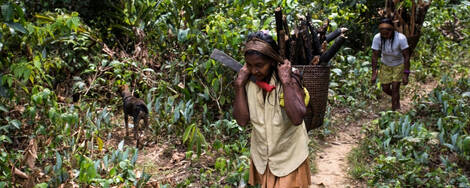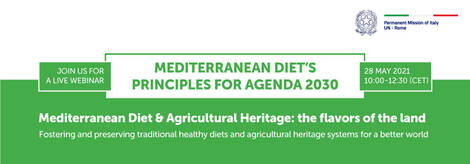
Indigenous peoples and afro-descendants' knowledge, innovations and resilience capacities are essential for the transformation to a more sustainable and climate-friendly world and should be included in the policy-making processes, agreed the High-Level Seminar convened today by the Food and Agriculture Organization of the United Nations (FAO), the governments of Costa Rica, Spain and the Vatican.
Indigenous peoples are major contributors to positive change, yet these valuable contributions are seldom reflected in...

©FAO/GIAHS Huzhou Mulberry-dyke and Fish Pond System
The Ministry of Agriculture and Rural Affairs of the People's Republic of China, in collaboration with FAO’s Globally Important Agricultural Heritage Systems Secretariat, will hold the 7th High-Level online Training course on Globally Important Agricultural Heritage Systems from 8th to 16th of September 2021.
The training aims to raise awareness and share experiences about the GIAHS concept and its potential for sustainable rural development. Some 16 GIAHS and non-GIAHS countries will participate in the training,...

This online event was part of the initiative “Mediterranean Diet’s Principles for Agenda 2030”, a series of thematic sessions promoted by the Food and Agriculture Organization and the Italian Permanent Representation to raise awareness on how the Mediterranean Diet can help achieve Sustainable Development Goals. A sustainable diet should guarantee food security, promote healthy lifestyles, avoid food loss and waste, contribute to reducing environmental impacts, and improve the well-being of current and future...
国际茶日 | 创新突围:疫情下的福州茉莉花茶
17 May 2021
17 May 2021

“窨得茉莉无上味,列作人间第一香。”茶香与茉莉花香的交融,造就了茉莉花茶独一无二的香味。福州茉莉花茶源于汉、成于宋、盛于清,在长达两千年的协同进化过程中逐渐完善,是古人利用环境、适应环境发展农业的典范,是农业的活化石。2014年,福州茉莉花种植与茶文化系统被联合国粮农组织认定为“全球重要农业文化遗产系统(GIAHS)”。


